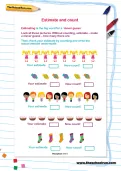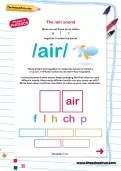Important update from TheSchoolRun
For the past 13 years, TheSchoolRun has been run by a small team of mums working from home, dedicated to providing quality educational resources to primary school parents. Unfortunately, rising supplier costs and falling revenue have made it impossible for us to continue operating, and we’ve had to make the difficult decision to close. The good news: We’ve arranged for another educational provider to take over many of our resources. These will be hosted on a new portal, where the content will be updated and expanded to support your child’s learning.
What this means for subscribers:
- Your subscription is still active, and for now, you can keep using the website as normal — just log in with your usual details to access all our articles and resources*.
- In a few months, all resources will move to the new portal. You’ll continue to have access there until your subscription ends. We’ll send you full details nearer the time.
- As a thank you for your support, we’ll also be sending you 16 primary school eBooks (worth £108.84) to download and keep.
A few changes to be aware of:
- The Learning Journey weekly email has ended, but your child’s plan will still be updated on your dashboard each Monday. Just log in to see the recommended worksheets.
- The 11+ weekly emails have now ended. We sent you all the remaining emails in the series at the end of March — please check your inbox (and spam folder) if you haven’t seen them. You can also follow the full programme here: 11+ Learning Journey.
If you have any questions, please contact us at [email protected]. Thank you for being part of our journey it’s been a privilege to support your family’s learning.
*If you need to reset your password, it will still work as usual. Please check your spam folder if the reset email doesn’t appear in your inbox.
ICT in the Foundation Stage explained

ICT in the early years encourages your child to find out and identify the uses of everyday technology, such as office equipment, music keyboards, alarms and programmable toys. Children also practise what they have learnt by using the technology.
In early years ICT they will gain a range of skills widely applicable in life, such as cognitive, coordination, literacy and numeracy skills.
Colour-coded stepping stones
Your child will follow three colour-coded stepping stones in ICT to achieve the above ICT early learning goals. The steps are:
Yellow step
At this stage, your child is encouraged to show an interest in ICT. Examples of the kinds of activities your child might partake in include:
- On a visit to the school office children watch the school secretary using the photocopier, fax, email, telephone and computer. One child is fascinated to see a photocopied version of a picture she drew that morning.
- A small group of children visit the local supermarket with their teacher and are excited to see themselves on the CCTV screen. They all try to look for the camera.


Start the Reception Learning Programme!
- Weekly maths & English worksheets direct to your inbox
- Follows the National Curriculum
- Keeps your child's learning on track
Blue step
Your child now learns how to operate simple equipment. Lesson examples include:
- Some children use a walkie-talkie and pretend to be in a supermarket. They take it in turns to give instructions on what to fetch for customers.
- Four children work together to discover how to put an audio story tape into the tape recorder. They learn how to rewind, forward, pause, play and stop the tape.
Green step
Your child should now be able to complete a simple program on the computer and perform simple functions on ICT apparatus. Lesson examples include:
- Two children work together to create their own Mr Men character on a special website. They select the appropriate facial features, accessories and colours to make Mr Angry. Finally, they print him out.
ICT at home
There are plenty of ways you can support your child’s ICT learning outside the classroom. Try these simple activities:
- If you own an answerphone, let your child help you to record a greeting message and to play back any messages left. Take turns to call your number and leave your own messages, too.
- Encourage your child to point out information communication technology around your home and while you are out. Show your child how you programme the washing machine. Stimulate interest by pointing out barcode scanners and weighing scales in the supermarket. And on the roads, point out the pedestrian crossing box and speed cameras.
- Show your child how to move the computer mouse and point out how it moves the curser on screen. If you don't have a computer at home, remember libraries offer access free of charge.
- Show your child how to change channels on the TV and switch them on and off.
- You don't have to wait for a special event to take photos. Even the journey to nursery or school can be captured using a digital camera. The pictures can then be downloaded to the computer and printed off.
- Try computer programs, such as Simulation Explorer (Granada Learning, £19.99), which is designed to introduce children to computer simulations and allows them to explore situations that would be difficult or impossible in practice. It recently won the Primary BETT Award for Science.